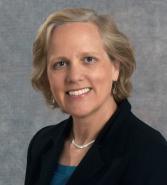
Member Prices
Non-Member Prices
This webinar illustrates how patient-oriented translational research advances clinical practice for OCD. First, Dr. Simpson reviews the clinical presentation of OCD and our first-line treatments followed by a discussion of how clinical trials can be used to address clinically important and relevant questions, leading to practice guidelines and treatment algorithms. Dr. Simpson highlights two urgent clinical problems and how research is addressing them. These problems include:
1) Though we have two first-line treatments that can get half of people with OCD well, most people cannot access them. This is due in part to clinicians not knowing how to diagnose and treat OCD. To address this problem, Dr. Simpson describes her research program’s partnership with the New York State Office of Mental Health to study how best to teach frontline clinicians in how to diagnose and treat OCD. This provides an example of implementation science.
2) We have two good first-line treatments but they do not work for all people and we don’t know why. This is due in large part because we do not know what causes OCD or how our treatments work on the brain. Regarding this problem, Dr. Simpson describes how we use brain imaging methods to study the brain mechanisms underlying obsessions and compulsions, with the goal of identifying robust new treatment targets.
In sum, this presentation provides a brief update/overview about OCD, while also outlining how different types of research methods (e.g., clinical trials, implementation science, neuroimaging) can be used to address important clinical problems and how the data can lead to changes in practice that will impact the mental health of our communities.
Learning Objectives:
- Participants will be able to describe the key characteristics of OCD and its first-line treatments.
- Participants will be able to describe what a randomized controlled trial is and the types of questions it addresses.
- Participants will be able to describe the science of implementation and how neuroimaging might lead to new diagnostics or targets for treatment development.
If you previously registered for and missed the live webinar, please contact [email protected].













